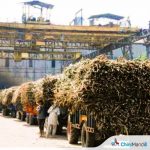After the new EU/Mercosur Free Trade Agreement, the African, Caribbean, Pacific, and Least Developed Countries’ Sugarcane Industries Group (ACP/LDC Sugar Industries Group) strongly opposed the deal and urged the European Commission to renew consultations with ACP and LDC countries with a view to respecting the EU’s Economic Partnership Agreements’ legal obligations and “policy coherence for development”.
According to the press release, each tonne of trade preference for sugar which would be given to Brazil and Paraguay under the EU/Mercosur Free Trade Agreement would be a tonne of previously negotiated preference taken away from African, Caribbean, Pacific and LDC countries. This loss of preference directly hits ACP and LDC traditional sugar suppliers financially in terms of lost trading and market development opportunities and lower prices in the European sugar markets. It only favours the government-supported sugarcane industry of Brazil. The ACP/LDC sugarcane industries should not be expected to bear the direct loss of preference envisaged in the EU/Mercosur trade deal.
The ACP/LDC Sugarcane Industries urged the European Commission to renew consultations with ACP and LDC countries with a view to respecting the EU’s Economic Partnership Agreements legal obligations and “policy coherence for development”.
“Sugar industries in ACP and LDC countries are powerful motors for socio-economic development and diversification towards the many environmentally sustainable by-products deriving from sugar cane, in particular carbon neutral energy. On the other hand, Brazil’s sugar industry is supported by numerous and material government programmes which are unavailable to such poor countries,” the press release further added.
According to the ACP/LDC Sugarcane Industries Group, the loss of preference envisaged in the EU/Mercosur deal would compound the huge impact of the loss to them arising from the sugar TRQs already implemented since 2009. The sugar quotas afforded to Central America and Andean Pact countries in 2013, and others since then, have amounted in total to 430,829 tonnes. This loss of 430,829 tonnes of preference for ACP and LDC sugar excludes the quantities imported from Ukraine; including Ukraine, the total trade preference loss amounts to 713,552 tonnes. The total of the TRQs now open for EU traders to import sugar from non-ACP and non-LDC countries now amounts to 1,699,915 tonnes (including the Ukraine “emergency brake”). The proposed EU/Mercosur FTA would add another 190,000 tonnes to this total, and further erode the financial position of ACP and LDC sugar industries which export to the European sugar markets.
Sustainable socio-economic development in ACP and LDC countries is predicated on ACP and LDC industries being financially sustainable. Although sugar represents a declining proportion of the total of ACP and LDC gross domestic product, its importance to certain ACP and LDC countries remains paramount, especially in rural areas, and moreover sugar cane industries tend to “irrigate” economies in multiple beneficial ways.












